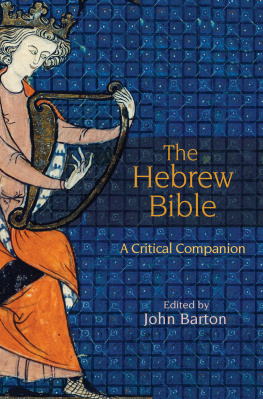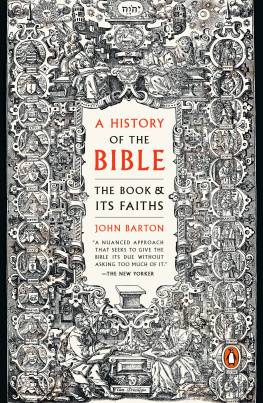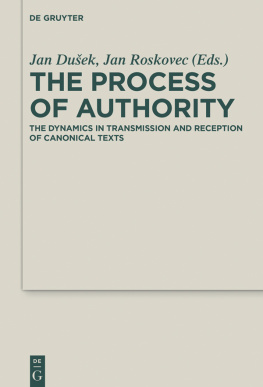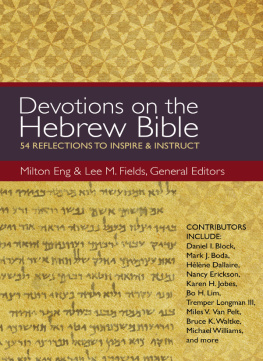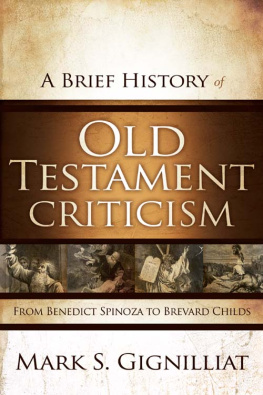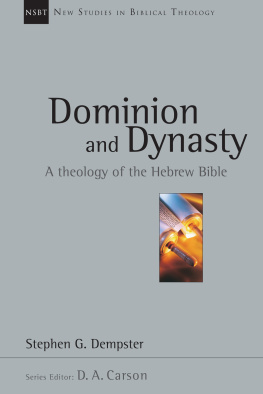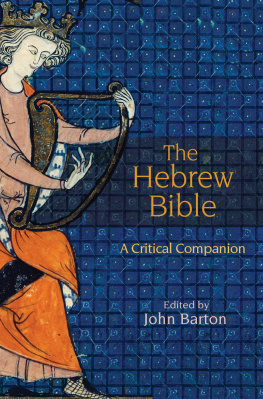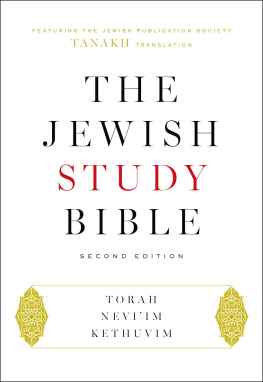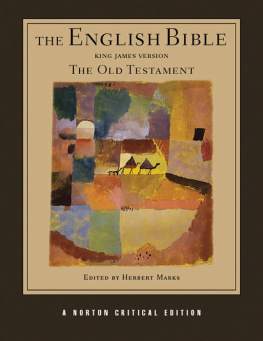
The
Hebrew Bible

The
Hebrew Bible

A CRITICAL COMPANION
Edited by
John Barton
PRINCETON UNIVERSITY PRESS
PRINCETON AND OXFORD
Copyright 2016 by Princeton University Press
Published by Princeton University Press, 41 William Street, Princeton, New Jersey 08540
In the United Kingdom: Princeton University Press, 6 Oxford Street, Woodstock, Oxfordshire OX20 1TR
press.princeton.edu
Jacket art: King David Playing a Harp, Miscellany of biblical and other texts. France, Amiens, 127786. London, British Library, MS Add. 11639, f. 117v.
All Rights Reserved
Library of Congress Cataloging-in-Publication Data
The Hebrew Bible / edited by John Barton.
pages cm
This is a general-interest introduction to the Old Testament from many disciplines. There are 23 essays with 23 individual reference lists.
Includes bibliographical references and index.
ISBN 9780-691154718 (hardcover : alk. paper) 1. Bible. Old TestamentIntroductions. I. Barton, John, 1948 editor.
BS1140.3.H43 2016
221.6'1dc23
2015036308
British Library Cataloging-in-Publication Data is available
This book has been composed in Minion Pro and Novarese Std
Printed on acid-free paper.
Printed in the United States of America
10 9 8 7 6 5 4 3 2 1
Contents

John Barton |
Part I.
The Hebrew Bible in Its Historical and Social Context |
John Barton |
Francesca Stavrakopoulou |
Katherine Southwood |
Anthony J. Frendo |
Part II.
Major Genres of Biblical Literature |
Thomas Rmer |
R. G. Kratz |
Assnat Bartor |
Jennie Grillo |
Susan Gillingham |
Part III.
Major Religious Themes |
Benjamin D. Sommer |
Hermann Spieckermann |
Hilary Marlow |
Dominik Markl |
C. L. Crouch |
Stephen C. Russell |
Seth D. Kunin |
Part IV.
The Study and Reception of the Hebrew Bible |
Alison Gray |
Christoph Bultmann |
David Jasper |
R.W.L. Moberly |
Eryl W. Davies |
Carmel McCarthy |
Adrian Curtis |
Introduction

John Barton
G uides or introductions to the Bible have traditionally worked through the text book by book, giving the reader information about the date of origin and development of each book in turn. In this guide a different approach is adopted. In examines the dissemination and reception of the text, looking at the Bibles reception history, the tradition of historical-critical inquiry into the Bibles origins and development, literary approaches (now growing in importance), theological interpretations, and political and advocacy readings of the text (such as liberationist and feminist approaches). Two final chapters consider the transmission of the biblical text and its translation and the mapping of biblical narratives. Each chapter ends by pointing readers to the most important works on the subject of the chapter.
With this approach to the Hebrew Bible we hope to cover more of the questions careful readers will ask than could be done in a simple, serial introduction to each book in turn. The contents of the Hebrew Bible are all dealt with in the book, taken as a whole, but the approach is much more thematic than has been usual. The writers are all specialists in the topics they write on, and they offer an overview of biblical scholarship at this particular moment in the twenty-first century. They were not chosen for any particular religious commitment: some are Jews, some are Christians of various kinds, some have no religious commitment at all. What unites them is deep involvement in biblical study, together with a concern to communicate the results of this study to a wider public.
The nonconfessional character of the book is not simply a negative point but conveys a definite message. Biblical scholarship is traditionally part of theology and has been conducted chiefly by people with a religious commitment. This does not seem likely to change. But the study of the Bible also exists within a broader context of study in the humanities. Even biblical scholars who are religious believers, and who see the Bible as a text to which they are committed by their faith, still recognize that the boundaries between biblical study and the study of other literature, human history, philosophy, social science, and language are porous. Biblical study has alwaysbut perhaps especially since the European Enlightenmentbeen part of a wider attempt to make sense of human culture. It is continuous with other humanistic study. Biblical study belongs in the university as well as in the church or the synagogue: not in a reductionist sense, as though the religious side were unimportant, but in the positive sense that the Bible is one of the great texts of our culture and needs to be studied with all the rigor and insight that we apply to other texts and their historical and cultural contexts.
The overall aim of this book is thus not simply to provide useful information about the nature and context of the biblical booksthough that of course is an aimbut to help reintegrate the study of the Bible into a wider framework of human literature and culture. The time is long past when every educated person in the West knew the contents of the Bible as a matter of everyday cultural knowledge: students of literature now need courses on biblical knowledge in order to understand references in older poetry and prose that were second nature to our forebears. Nowadays general knowledge of the Bible is thin and slight. The Bible is seen as religious in a negative sense, as of interest only to religious people and no longer part of the general culture. One of our purposes in writing this guide is to break down this barrier and encourage a wider understanding of the complex, diverse, and above all interesting collection of books that is the Hebrew Bible.
Contributors

John Barton is Emeritus Oriel and Laing Professor of the Interpretation of Holy Scripture, University of Oxford, and Senior Research Fellow of Campion Hall, Oxford.
Assnat Bartor is Lecturer in Biblical Studies in the Department of Hebrew Culture, Tel Aviv University.
Christoph Bultmann is Professor of Biblical Studies, University of Erfurt.
C. L. Crouch is Lecturer in Hebrew Bible, University of Nottingham.
Adrian Curtis is Honorary Research Fellow in Religions and Theology, University of Manchester.
Eryl W. Davies is Professor and Head of the School of Philosophy and Religion, Bangor University, Wales.
Anthony J. Frendo is Professor of Near Eastern Archaeology and the Hebrew Bible, University of Malta.
Next page
